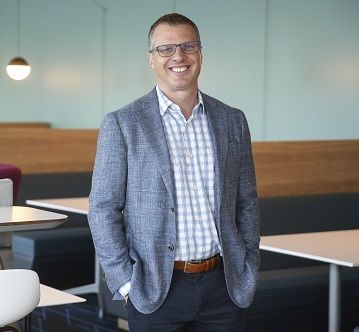A Conversation with Tommy Bramley, Lash Group
The head of Lash Group looks at the evolving patient support / hub services environment
credit: Melissa Key, copyright 2018 Charlotte Business Journal. All rights reserved. Reprinted with permission.

Lash Group, a business unit of AmerisourceBergen since 1998, was one of the pioneering firms established to provide patient-support services, sponsored by pharma companies, in the specialty-pharmaceutical arena. It currently manages over 100 drug programs, with over 1,000 associates, mostly at its headquarters in Fort Mill, SC. A noncommercial pharmacy (TheraCom), provides drugs by mail in limited instances; Lash also has some collaborative arrangements with other parts of AmerisourceBergen, such as the Xcenda consulting group, and the US Bioservices specialty pharmacy.
Pharmaceutical Commerce sat down with Tommy Bramley, president of Lash Group, to see where the patient support business is today, and where it is heading. Here’s what he had to say.
1. Give us an overview of the scope of Lash’s services today.
Lash is the leading and oldest hub provider; we’ve been in business for 30 years, and continue to evolve. There are two things we focus on: bringing in highly trained associates, people who are passionate about taking care of patients; and using technology to harness associates’ functions at the top of their skill sets.
We handle over 100 programs for our manufacturer clients in nearly every therapeutic area, including oral therapies, injectables, and physician-administered. We launched 17 new programs last year, which usually start in our Launch Center of Excellence, a methodical approach that has resonated well in the market. Usually, our programs extend for years beyond the launch of a new drug.
In a like manner, we’ve also developed a Quality Center of Excellence, to enhance the expertise of our care navigators and other associates. Lash has 100 people dedicated exclusively to quality management in patient care, and all our associates go through extensive training and ongoing quality monitoring. When we’re hiring, we like to say “We hire the heart and train the brain,” meaning that we want individuals who are passionate about patient care, and then surround those individuals with training. We have a wide spectrum of individuals working at Lash—nurses, pharmacists, and even one PhD health economist: me!
2. What does the patient support business look like today? How is it changing?
Without question, there is more of a regulatory scrutiny on patient support programs today. Beyond that, our business breaks down into four areas: access, affordability, adherence, and the support provided by our noncommercial (free goods) pharmacy.
Access means starting the therapy physicians intended for patients to receive as fast as possible. Benefits investigation/verification and completing prior authorization documentation are key. We’ve focused on the right investments in technology to streamline those processes.
Affordability means helping patients with copay assistance, and managing free goods or patient assistance programs effectively. For this, we depend on TheraCom, our Brooks, KY, noncommercial pharmacy.
Adherence programs are a combination of patient education and intervention by our care navigators. This can be a hightouch service, involving our navigators and nursing support, and pairing that with high-tech mobile engagement, reaching patients where they’re at. This aspect of the business is evolving dramatically, by harnessing technology to speed therapy and to help patients stay on therapy.
Overall, I do believe that pharmaceuticals can be the best investment we can make in healthcare: with access to therapy, you get patients on the road to recovery faster, and lower the overall cost of healthcare.
3. How do the conversations with pharma clients go today? Is patient support a well-established practice, or does Lash have to “proselytize” on its benefits to clients?
The majority of the drug pipeline today is specialty. I can make a case that all types of products need support services, but when you look at access that is controlled by the PA process, it’s traditionally specialty.
Where we’ve had conversations with pharma, it’s mostly about the technology we’re using, and the associates that we have. If you have just a tech solution, you lose the humanity in the process. Where we’re best positioned is pairing our technology with our associates. In deeper conversations, we emphasize how we’re using technology to drive better patient outcomes, to address overall spend, and to increase the quality of life. The conversation has evolved regarding the technology/associate discussion.
We’re always looking to control costs. Like any industry, where there is good value you want to be efficient and streamline operations. But with patient support, the question should start with the value of starting and remaining on therapy. Technology is a big part of that. We’re engaged in the “digital transformation” you hear about, and it certainly allows us to be more efficient, to offer more value to patient, industry.
Newron, Myung In Pharm Form Partnership Centered Around Treating Schizophrenia in South Korea
January 14th 2025The license agreement will feature an upcoming Phase III trial and—depending on results—the development, manufacturing, and commercialization of evenamide as a potential treatment option.







